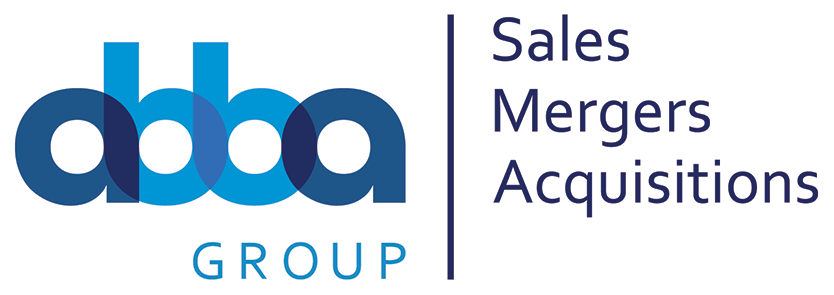How to Determine the Right Time to Sell Your Business

You may miss the best chance to earn a significant amount of money if you do not know when to sell your business. Small business owners often struggle with deciding when to sell their company; sometimes, they wait too long and see its value decline, or they sell too soon and miss out on potential profits. Choosing the ideal time to sell a business is crucial to securing a favourable deal and ensuring a smooth transition.
But how will you pinpoint the perfect moment? In this guide, we’ll discover key indicators, marketplace insights, and tips to help you make an informed decision.
Essential Tips to Select the Right Time for Selling Your Business
1) Assess Your Readiness
The first step in determining the right time to sell is assessing your readiness. Running a business requires energy, passion, and commitment. Ask yourself:
- Are you continuing to be passionate about the business or feeling burned out?
- Do you have clear plans for the business to exist after selling?
- Are personal desires influencing your selection, like retirement or pursuing that influence ability?
Personal readiness plays a large role because selling a business isn’t always only a financial transaction; it’s additionally an emotional journey. If you feel prepared to let go and move ahead, it can be the right time to sell.
2) Evaluate the Market Conditions
Understanding the broader economic landscape and industry-specific trends is vital when deciding to sell your business. A strong market with high demand and favorable economic conditions can lead to better valuations and faster sales. Here’s how to assess the market:
- Industry trends: Is your industry growing or experiencing demanding situations? Selling during an enterprise upswing in your particular sector can boost buyer interest.
- Economic situations: A thriving economy often results in higher buyer self-belief and offers.
- Buyer demand: Research whether there’s a high demand for businesses like yours, both locally and globally.
Timing your sale during favorable market situations can appreciably affect the very last sale price.
3) Analyze Your Business’s Performance
Your business’s overall performance is one of the most crucial factors buyers keep in mind. Selling during a period of strong financial performance, steady growth, or after a major success (which includes launching a brand new product or expanding to a new marketplace) will enhance its value. Consider these indicators:
- Revenue tendencies: Are your sales and earnings trending upward?
- Customer base: Do you have dependable, habitual clients who display stability?
- Growth ability: Is your business well-positioned for a future boom?
A successful company with a strong foundation and growth potential is more likely to demand a higher price from buyers. Avoid selling during a downturn or when performance is stagnant.
4) Consider Your Business’s Lifecycle
Every business goes through stages of growth, maturity, and decline. Selling during the maturity phase, when your business is stable but still has growth potential, often yields the best results. Here’s how to evaluate your business lifecycle:
- Start-up phase: Selling at this stage can be risky unless your business model is highly innovative.
- Growth phase: High-growth businesses are attractive to buyers seeking scale opportunities.
- Maturity phase: This is often the optimal time to sell, as the business is established and profitable.
- Decline section: Selling during this phase may require a clear turnaround strategy to appeal to buyers.
Understanding your business’s lifecycle will help you identify the best timing.
5) Monitor Market Valuation Trends
Your business’s valuation will depend on factors like industry benchmarks, profitability, and market demand. Keeping a close eye on valuation trends in your sector can provide valuable insights. If similar businesses are selling for high multiples, it may be an ideal time to sell. Conversely, if valuations are declining, you might consider waiting.
Engaging an experienced business broker to assess your valuation can provide clarity and help you navigate current market conditions.
6) Plan Around Tax Implications
Selling your business can have significant tax implications. In Australia, for example, capital gains tax (CGT) can take a considerable portion of your earnings. Strategically timing your sale to benefit from tax concessions or favourable regulations is essential. Consult a tax advisor to:
- Understand your tax liabilities.
- Explore potential exemptions or concessions, such as the small business CGT concessions available in Australia.
- Plan the sale around the financial year-end for optimal tax efficiency.
Proper tax planning can make a substantial difference to your net proceeds.
7) Determine Potential Buyers Early
Knowing who might purchase your business can also influence the timing. Whether it’s a competitor, investor, or private equity firm, identifying potential buyers helps you position your business effectively. If you’ve already received interest or inquiries, it may indicate strong market demand.
8 ) Consult with Experts
Deciding the right time to sell a business in Australia isn’t something you have to make alone. Experienced business brokers, such as ABBA Group, specialise in helping sellers navigate the process. They can provide insights into market trends, valuations, and legal considerations, ensuring you make a well-informed decision.
For more information on selling a business, get in touch with ABBA Group today!
Conclusion
In conclusion, determining the right time to sell your business requires balancing personal readiness, market conditions, and business performance. By carefully evaluating these factors and seeking expert advice, you can maximize the value of your sale and achieve your goals. Remember, the best time to sell isn’t just about external conditions—it’s about aligning your business’s potential with your future aspirations. When you’re ready, ABBA Group is here to help you navigate the process and ensure a seamless sale.
